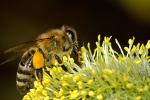H2020 ECOFUNCO Project: Sustainable, multifunctional, bio-based, and environmentally friendly coatings with improved performance and end-of-life options
- Type Project
- Status Filled
- Execution 2019 -2022
- Assigned Budget 4.613.778,25 €
- Scope Europeo
- Main source of financing Horizon 2020
- Project website Proyecto ECOFUNCO
Low-value biomass sources, such as tomatoes, legumes, watermelons, sunflowers, and shrimp, are more valuable than ever for the EU-funded ECOFUNCO project. This project will select and extract functionalized molecules (active organic molecules, proteins, polysaccharides, cutin) for the development of new bio-based coating materials. These will be used on two different substrates: cellulosic and plastic, for the production of plastic trays and top layers (packaging for fresh products such as pasta, ham, and meat), as well as cellulose, woven, and nonwoven tableware (personal care products).
Cutin-based formulations will also be used for water-repellent coatings, such as paper cups and tableware. Protein- and chitosan-based barrier coatings will be used for multilayer food packaging.
During the first six months, ECOFUNCO conducted a comprehensive inventory and prepared a preliminary assessment report on the availability, geographic origin, seasonality, quality, safety, and sustainability of the selected crops and biomass feedstock to be used in the project. In month 18, important intermediate results were obtained: the development and optimization of different protein, chitin, and active molecule extraction methods based on solvent extraction, MAE, UAE, and innovative SFE processes.
For each waste type, the most efficient process in terms of active molecule content and quality was selected and further optimized. Significant achievements were also made in the production of mcl-PHA and microbial cellulose. Currently, at the end of the project, coating materials based on proteins for gas barriers, cutin for water barriers, and chitin for antimicrobial activity have been developed at laboratory scale, and in some cases, validation trials have been conducted at pilot scale with positive results. The overall environmental impact of all value chains addressed in the project has been assessed through LCA analyses.
The processes and technologies applied and developed at ECOFUNCO are innovative and high-tech, enabling the training of personnel for new positions in biotechnology, process monitoring, and sectors such as food, plastics, and healthcare. The main key resources generated were identified, and partners expressed specific interest in exploiting them. Three patents were filed. These include the extraction and functionalization of biomass molecules, as well as the production and application of bio-based coatings on cellulose and plastic substrates.
Regarding dissemination and communication, the consortium partners participated in conferences, events, and the BBI Stakeholder Forum Project Day. Dissemination took place in high schools and universities. The partners published twelve scientific articles in open-access journals.
Environmental and social awareness about the importance of sustainability and the bioeconomy is generating awareness about the sustainable development of inputs. Furthermore, there is a growing responsibility for the value and resources wasted due to food loss. It is estimated that approximately one-third of all food produced globally is wasted each year, generating 1.3 billion tons of waste. This occurs throughout the entire food value chain, from farmers to consumers.
The European Bioeconomy Strategy includes actions to ensure food security, manage natural resources, reduce dependence on non-renewable resources, mitigate and adapt to climate change, create jobs, and maintain European competitiveness. ECOFUNCO seeks to bring various benefits to primary production, including reducing food loss, preserving natural resources, replacing fossil raw materials, valorizing by-products, and reducing environmental impact. The objective of the ECOFUNCO project is to select, extract, and functionalize molecules (proteins, polysaccharides, cutin) from highly available, low-value biomass, such as tomato, legumes, sunflower, etc., for the development of new bio-based coating materials to be applied on two different substrates (cellulosic and plastic), with improved performance compared to currently available products and, at the same time, with more sustainable end-of-life options.
These materials have been used to manufacture the products (bio-based coatings for cellulose and plastics) that, in the second half of the project, will be validated for their final applications. The performance of the final products has been validated, and the overall environmental impact of the entire value chain has been assessed according to the LCA standard. The biomass-derived molecules targeted in the project, such as proteins for the gas barrier, chitosan-chitin for antimicrobial activity, and cutin for the water barrier, have been successfully extracted and produced from agri-food biomass.
The products developed within the project include: mcl-PHA, antimicrobial and antioxidant coatings based on chitin and/or chitosan nanofibrils; microbial cellulose for cellulose fabrics (personal care), paper and cardboard (packaging for fresh products such as pasta and tableware), woven and nonwoven fabrics (sanitary products); plastic substrates (biopolyesters) for active packaging; cutin-based formulations for water-repellent coatings (paper cups, toilet paper, etc.), water vapor barrier coatings (packaging), and coatings with protective properties (non-food packaging); protein barrier adhesive for multi-layer food packaging (based on biopolyesters), with sustainable end-of-life options (compostability and recyclability).
The overall objective of the ECOFUNCO project is to select, extract and functionalize molecules (proteins, polysaccharides, cutin) from highly available and undervalued biomass, such as tomato, legumes, sunflower, etc., for the development of new bio-based coating materials to be applied on two different substrates (cellulosic and plastic), with improved performances compared to currently available products and at the same time with more sustainable end-of-life options.
The products to be developed within the project are: Antimicrobial-antioxidant coatings based on chitin and/or chitosan nanofibrils, functionalized MC, for cellulose fabrics (personal care), paper and cardboard (packaging for fresh products such as pasta, tableware), woven and nonwoven fabrics (sanitary products), plastic substrates (biopolyesters) for active packaging. Cutin-based formulations for water-repellent coatings (paper cups, service paper, etc.), water vapor barrier (packaging) and protective properties (non-food packaging). Protein-based barrier adhesive for multi-layer food packaging (based on biopolyesters), with sustainable end-of-life options (compostability, recyclability).
ECOFUNCO supports Europe's transition to a bio-based economy by developing flexible, multipurpose biorefineries that apply various innovative cascading conversion technologies to produce high-value bioproducts.
Ultrasound-assisted extraction, microwave-assisted extraction, and supercritical fluid carbon dioxide extraction complement the original biocomposites in several ways:
- They improve extraction performance and, consequently, profitability.
- They allow the use of ecological solvents (e.g. water) improving their extraction performance.
- They improve the extraction of heat-sensitive components under conditions that would otherwise result in low or unacceptable yields. The use of bio-based proteins, cutin, and chitin for coatings, supported by process controls such as online monitoring, is innovative and meets the Industry 4.0 approach. Laboratory-scale results are highly positive, and by project completion, relevant products are expected to be ready for industrialization.
The use of cellulose and bioplastics in healthcare packaging and products is limited due to several disadvantages in their properties, including water vapor and oxygen barriers. ECOFUNCO will improve these barrier properties while adding antimicrobial benefits. ECOFUNCO's key findings were:
- Use of biological resources derived from by-products of the food and agro-industrial sector, and functional molecules of biological origin.
- High-performance, economically and environmentally sustainable bio-based coating for plastic and cellulosic substrates.
- Food packaging based on trays and films with different coatings.
- Prototypes of tableware (paper plates and cups) and cellulose-based personal care products (wipes), coated with ECOFUNCO formulated and validated at a pilot level with the aforementioned materials.
- Coated tissue for the healthcare sector. ECOFUNCO contributes to meeting the growing demand for bio-based, active, and biodegradable molecules and polymers for use in polymer formulations and applications. It introduces and validates eco-friendly biopolymers and additives in healthcare packaging and applications, driving growth in the bioplastics and paper products sectors and mitigating climate change. ECOFUNCO will also accelerate the market adoption of these biorefinery products, bio-based plastic or cellulose packaging, and healthcare products by developing a tailored business model and engaging stakeholders through an online platform for on-site access and testing of the resulting products.
- CONSORZIO INTERUNIVERSITARIO NAZIONALE PER LA SCIENZA E TECNOLOGIA DEI MATERIALI






